Home>Dining>Events & Etiquette>How To Accept A Dinner Invitation


Events & Etiquette
How To Accept A Dinner Invitation
Modified: January 6, 2024
Learn how to properly accept a dinner invitation with our comprehensive guide on event etiquette. Master the art of gracious acceptance and make a lasting impression.
(Many of the links in this article redirect to a specific reviewed product. Your purchase of these products through affiliate links helps to generate commission for Storables.com, at no extra cost. Learn more)
Introduction
Getting invited to a dinner is always an exciting event, but it also comes with certain etiquette expectations and social norms. Whether it’s a formal gala or a casual get-together, accepting a dinner invitation requires a thoughtful approach. In this article, we will explore how to gracefully accept a dinner invitation and navigate through the event with style and etiquette.
When you receive a dinner invitation, it’s essential to take a moment to consider various factors before responding. This thoughtful consideration will help ensure a positive experience for both you and the host.
First and foremost, evaluate your availability. Check your schedule and determine if you can attend the event. Consider any conflicting commitments, such as prior engagements or work-related obligations. It’s crucial to be honest with yourself and only accept the invitation if you are confident in your ability to attend.
Next, assess your personal connection with the host. If the invitation comes from a close friend or family member, your decision may lean towards accepting it as a way to strengthen your bond and show support. On the other hand, if the invitation is from an acquaintance or business associate, you might consider the importance of networking opportunities and professional relationships while making your decision.
Additionally, consider the nature of the event. Is it a formal dinner party or a casual gathering? The type of event can influence your decision and dictate the level of formality in your response and overall demeanor.
Once you have taken the time to consider these factors, it’s time to respond to the invitation. Your response should be prompt, polite, and reflect your appreciation for the invitation.
When responding to a dinner invitation, it’s considered good practice to use the same medium through which you received the invitation. If the invitation was sent via email, respond via email. Similarly, if you received a formal paper invitation, sending a handwritten response would be more appropriate.
In your response, begin by expressing your gratitude for the invitation. A simple “Thank you for inviting me to your dinner” is a gracious way to start. Follow this with a brief statement indicating your intention to attend. For example, you can say, “I would be delighted to join you for dinner.”
If, for any reason, you are unable to attend the dinner, express your regrets sincerely. Provide a brief explanation for your inability to attend, such as a prior commitment or conflicting schedule. It’s important to apologize for any inconvenience caused and express your disappointment for missing the event.
In the next section, we will delve into the details of confirming your attendance and discussing any dietary restrictions or preferences you may have. Let’s make sure that accepting this dinner invitation is a seamless and enjoyable experience for everyone involved!
Key Takeaways:
- Gracefully accept dinner invitations by considering availability, expressing gratitude, and adhering to dress codes. Communicate dietary restrictions and engage in meaningful conversations to leave a positive impression.
- Confirm attendance promptly, express gratitude throughout the evening, and follow up with a handwritten thank-you note. Embrace the opportunity to connect, cherish moments, and leave a lasting positive impression.
Consider the Invitation
When you receive a dinner invitation, it’s important to carefully consider the details provided by the host. This will help you prepare appropriately and ensure a smooth and enjoyable experience. Here are a few aspects to consider:
Date and Time: Note the date and time of the dinner. Check your personal schedule to ensure you’re available and able to commit to the event. If there are any conflicts, consider whether you can rearrange or decline the conflicting commitment.
Location: Familiarize yourself with the location of the dinner. If it’s a venue you’re unfamiliar with, research the address and plan your travel route in advance. Make a note of any parking options or public transportation that may be available.
Theme or Purpose: Determine if the dinner has a specific theme or a specific purpose. Is it a celebration, a networking event, or a casual get-together? Understanding the purpose of the dinner will help you prepare the appropriate conversation topics and be mindful of the overall ambiance.
Guest List: Take note of who else will be attending the dinner. If you know other guests, it can be helpful to do a bit of research or refresh your memory about their background or shared interests. This will allow you to engage in meaningful conversations and make connections during the event.
Special Requests or Instructions: Read the invitation carefully for any special requests or instructions from the host. This may include dress code suggestions, dietary restrictions, or bringing a contribution to the dinner, such as a dish or a bottle of wine. Being aware of these requests ensures that you comply with the host’s wishes and contribute positively to the event.
RSVP Deadline: Lastly, pay attention to the RSVP deadline mentioned in the invitation. Respond within the given timeframe to accommodate the host’s preparations and provide an accurate headcount for the dinner.
By considering these details, you demonstrate your attentiveness and respect for the host’s efforts in organizing the dinner. It also helps you better prepare for the event, ensuring you have a pleasant and enjoyable experience.
In the next section, we will discuss how to respond to the invitation in a gracious and timely manner. Let’s make sure we accept the invitation with poise and gratitude!
Responding to the Invitation
Once you have carefully considered the dinner invitation, it’s time to respond to the host. Your response should convey your appreciation for the invitation and demonstrate your enthusiasm for attending. Here are some guidelines for responding to a dinner invitation:
Promptness: Reply to the invitation as soon as possible, ideally within 24-48 hours. This allows the host to make necessary arrangements and plan accordingly. Delaying your response can create uncertainty and inconvenience for the host.
Gratitude: Begin your response by expressing your appreciation for the invitation. A simple thank you message goes a long way. For example, you can say, “Thank you so much for inviting me to your dinner. I’m honored to be included.”
Acceptance: If you’re able to attend the dinner, let the host know that you accept the invitation. Use a positive and enthusiastic tone in your response. For instance, you can say, “I would be delighted to join you for dinner. It sounds like a wonderful evening!”
Regrets: If you’re unable to attend the dinner, respond with a gracious decline. Be honest about your reasons for not being able to attend, without going into excessive detail. Apologize for any inconvenience caused and express your disappointment for missing the event. For example, you can say, “Unfortunately, I already have a prior commitment on that date. I’m truly sorry to miss out on such a special occasion.”
Alternative Option: If you’re unable to attend the original dinner, you may suggest an alternative way to connect with the host. For instance, you can propose meeting for lunch or coffee at a later date. This shows your interest in maintaining a connection despite not being able to attend the dinner.
Politeness: Ensure that your response is polite and respectful. Use proper language and avoid slang or informal terms in your communication. Remember to address the host by their name and include a closing statement to conclude your response, such as “Looking forward to the event!”
Confirmation: If the invitation request a confirmation, make sure to explicitly mention your RSVP. This helps the host keep track of the guest list and make necessary arrangements.
Medium of Response: Respond using the same medium through which you received the invitation. If the invitation was sent via email, reply to the email thread. Similarly, if you received a paper invitation, respond with a handwritten note or a phone call, depending on the host’s preferred method of communication.
Following these guidelines will ensure that your response is thoughtful, appreciative, and considerate of the host’s efforts in organizing the dinner. It sets the tone for a pleasant and enjoyable experience for both you and the host.
In the next section, we will explore how to confirm your attendance and discuss any dietary restrictions or preferences you may have. Let’s prepare for a fantastic dining experience!
Confirming Attendance
After accepting a dinner invitation, it’s important to confirm your attendance with the host. Confirming your presence helps the host make accurate arrangements and ensures a smooth and enjoyable dinner experience for everyone involved. Here are some important factors to consider when confirming your attendance:
RSVP Deadline: Check the invitation for any specified RSVP deadline. It’s crucial to respond within the given timeframe to avoid causing inconvenience to the host and to ensure an accurate headcount for the dinner.
Confirmation Method: Find out the preferred method of confirmation chosen by the host. Some hosts may request a phone call, while others may prefer an email or a text message. Use the same communication medium to confirm your attendance.
Gratitude: Begin your confirmation message by expressing your gratitude once again for the invitation. Reiterate your excitement to attend the dinner. A simple thank you message, such as “Thank you again for including me. I’m really looking forward to the dinner,” goes a long way in conveying your appreciation.
Specifics: Provide any additional details requested by the host, such as confirming the number of people attending if you were given the option to bring a guest. Be clear and concise in your response to avoid any confusion.
Updates: If there have been any changes since your initial acceptance, such as a change in dietary restrictions or any other relevant updates, make sure to communicate this to the host. It’s important for the host to have all the necessary information to accommodate everyone’s needs.
Confirmation of Assistance: If you offered to contribute to the dinner, such as bringing a dish or a bottle of wine, reconfirm your offer and inquire if there are any specific preferences or suggestions regarding your contribution.
Politeness: As with your initial response, make sure to maintain politeness and respect in your confirmation message. Use proper language and avoid slang or informal expressions. A warm closing statement, such as “I’m truly honored to be part of this event. See you soon!” adds a nice touch to your confirmation.
By promptly confirming your attendance and providing any necessary updates or information, you help the host make appropriate preparations and ensure a seamless dining experience. It reflects your attentiveness and consideration as a guest.
In the next sections, we will dive into topics such as dietary restrictions and preferences, dress code, arriving on time, and socializing with fellow guests. Let’s make sure we are well-prepared for a delightful dinner!
Dietary Restrictions and Preferences
When attending a dinner, it’s essential to communicate any dietary restrictions or preferences you may have to the host. This allows them to plan the menu accordingly and ensure that everyone’s needs are accommodated. Here are some tips on how to navigate dietary restrictions and preferences:
Informing the Host: As soon as you become aware of any dietary restrictions or preferences, it’s important to inform the host. You can do this during your initial response or when confirming your attendance. Clearly communicate your specific needs, such as allergies, intolerances, or dietary choices (e.g., vegan, vegetarian, gluten-free).
Be Specific: Provide as much detail as possible about your restrictions or preferences. For allergies, indicate the specific ingredient or food item that you cannot consume. If you follow a particular dietary choice, specify any specific restrictions or requirements associated with it. The more information you provide, the easier it will be for the host to accommodate your needs.
Offer Solutions: If you are comfortable doing so, you can offer to bring a suitable dish or suggest alternative options that align with your dietary restrictions. This takes some of the responsibility off the host and ensures that you have something to eat that meets your requirements.
Communication with the Chef or Caterer: If the dinner is being prepared by a professional chef or caterer, ensure that the host relays your dietary restrictions to them. If possible, you may also request to speak directly with the chef to discuss your needs and ensure that they are met.
Acceptable Alternatives: If the host is not able to accommodate your specific dietary restrictions, be prepared to be flexible. It may be necessary to make some compromises, such as avoiding certain dishes or opting for alternatives that are available. Remember to approach these situations with gratitude and understanding.
Gratitude and Appreciation: Show your appreciation to the host for taking your dietary restrictions or preferences into consideration. Thank them for their efforts in ensuring that you have suitable options and express gratitude for any accommodations made on your behalf.
Be Polite: During the dinner, if any questions or concerns arise regarding the menu or the ingredients, address them politely or discreetly. Avoid making a scene or drawing unnecessary attention to your dietary needs.
By communicating your dietary restrictions and preferences in a respectful and timely manner, you help the host make necessary arrangements and ensure that you can fully enjoy the dinner without any concerns. It also demonstrates your consideration for the efforts made to accommodate everyone’s needs.
In the next sections, we will discuss the dress code, arrival on time, socializing with fellow guests, and expressing gratitude. Let’s continue preparing for a memorable dinner experience!
When accepting a dinner invitation, be sure to express your gratitude and confirm your attendance in a timely manner. This shows respect for the host and helps with their planning.
Read more: How To Cancel A Dinner Invitation
Dress Code
When attending a dinner, it’s important to adhere to the dress code specified by the host. The dress code sets the tone for the event and contributes to the overall ambiance. Here are some guidelines on how to navigate the dress code for a dinner:
Read the Invitation: Start by carefully reading the invitation to see if there is a specific dress code mentioned. The host may provide instructions such as “black-tie,” “cocktail attire,” or “smart casual.” Pay close attention to these details as they give you a clear indication of the expected dress code.
Understand the Terminology: If the invitation mentions specific dress code terms that you are unfamiliar with, take the time to research and understand what they mean. Look up guides or examples to get a better idea of the appropriate attire for the occasion.
Dress Appropriately: Once you understand the dress code, select an outfit that is suitable for the event. Dress a level above the dress code if you are uncertain. It’s always better to be slightly overdressed than underdressed. Remember to consider the venue, the nature of the event, and the host’s preferences when choosing your attire.
Respect the Host’s Wishes: If the host has explicitly mentioned a particular dress code, it is important to respect their wishes and follow the guidelines. The host has chosen a dress code for a reason, and not adhering to it may make you stand out in a way that is unintended and disrespectful.
Attention to Details: Pay attention to the smaller details of your attire, such as accessories, shoes, and grooming. Ensure that your outfit is clean, well-fitted, and presents a polished appearance. Take care of personal grooming like hair, makeup, and nails to complete your overall look.
Ask for Clarification: If you are unsure about the appropriate attire or have any questions, do not hesitate to reach out to the host for clarification. It’s better to ask in advance and ensure that you are dressed appropriately for the occasion.
Be Comfortable: While it is important to adhere to the dress code, it is equally essential to feel comfortable in what you are wearing. Choose an outfit that you feel confident and at ease in, as this will help you fully enjoy the dinner and engage in conversations with other guests.
Complement the Atmosphere: Ultimately, your attire should complement the atmosphere and the purpose of the event. Whether it’s a formal affair or a casual gathering, your outfit should reflect the desired ambiance and contribute positively to the overall experience.
By following the dress code instructions and dressing appropriately for the dinner, you show respect for the host’s wishes and contribute to the overall harmony of the event. It also allows you to feel confident and comfortable, enabling you to fully enjoy the evening.
In the next sections, we will discuss the importance of arriving on time, socializing with other guests, expressing gratitude, and concluding the dinner. Let’s continue our preparations for a memorable dining experience!
Arriving on Time
Arriving on time to a dinner is not only a sign of respect for the host but also ensures that the event runs smoothly for everyone. Punctuality sets a positive tone for the evening and allows for a seamless and enjoyable dining experience. Here are some tips on how to arrive on time for a dinner:
Plan Ahead: Before the dinner, familiarize yourself with the location and estimate the time it will take to arrive. Consider factors such as traffic, parking availability, and public transportation schedules. Allow extra time in case of any unforeseen circumstances.
Leave Buffer Time: It’s always a good idea to leave earlier than necessary to account for any unexpected delays. Aim to arrive at the venue around 10-15 minutes before the scheduled start time. This allows you to settle in, greet the host, and mingle with other early guests.
Notify the Host: If you anticipate being slightly delayed, inform the host in advance. Apologize for the inconvenience and provide an estimated time of arrival. Communicating your delayed arrival shows consideration and allows the host to adjust their plans accordingly.
Avoid Last-Minute Activities: Try to avoid scheduling any tasks or appointments immediately before the dinner that might cause you to be late. Finish any important tasks well in advance to ensure that you have sufficient time to prepare and arrive on time.
Organize Your Attire and Belongings: Lay out your outfit, accessories, and any contribution you may be bringing to the dinner the night before. This will save time in the morning and reduce the chances of forgetting anything essential.
Prepare Directions and Contact Information: Make sure you have the correct address and directions to the venue. Save contact information for the host or any emergency contacts in case you encounter any issues during your journey.
Consider Traffic and Parking: If you anticipate heavy traffic or parking challenges, plan accordingly. Research parking options near the venue in advance and allocate extra time for finding a suitable parking spot.
Be Respectful of Others’ Time: Remember that arriving late not only disrupts the flow of the event but also shows a lack of consideration for the host and other guests who have made an effort to be on time. Being punctual demonstrates good manners and helps create a positive atmosphere.
Be Mindful of the Host’s Schedule: Arriving on time allows the host to stick to their planned timeline and ensures that you don’t miss out on any welcome greetings, introductions, or scheduled activities. It also allows the meal to be served and enjoyed at the desired time.
By making a conscious effort to arrive on time, you contribute to the overall success of the dinner and show respect for the host’s efforts. Being punctual allows everyone to start the evening on the right note and enjoy a memorable dining experience.
In the next sections, we will explore how to socialize and converse with fellow guests, express gratitude to the host, and conclude the dinner appropriately. Let’s continue our preparations for a remarkable evening!
Socializing and Conversations
Attending a dinner is not just about enjoying a delicious meal; it’s also an opportunity to connect with fellow guests and engage in meaningful conversations. Socializing plays a crucial role in creating a pleasant atmosphere and making the evening memorable. Here are some tips on how to navigate socializing and conversations at a dinner:
Initiate Greetings: Upon arrival, greet the host and express your gratitude for the invitation. Extend warm greetings to other guests as they arrive. A smile and a genuine “hello” go a long way in establishing a friendly atmosphere.
Be Approachable: Maintain an open and welcoming demeanor, making it easier for others to approach you. Avoid appearing too engrossed in your phone or personal conversations, and be mindful of your body language, signaling that you are open to engaging in conversation.
Introduce Yourself: If you are unfamiliar with other guests, take the initiative to introduce yourself. Offer a firm handshake, make eye contact, and exchange names. This simple gesture helps break the ice and sets the foundation for further conversation.
Ask Open-Ended Questions: Engage in conversations by asking open-ended questions that encourage others to share more about themselves. These questions require more than a simple “yes” or “no” answer and allow for more meaningful and interesting conversations. For example, instead of asking, “Did you have a busy week?”, ask, “What exciting things have you been up to lately?”
Show Genuine Interest: Listen attentively to others and show genuine interest in their responses. Engage actively in the conversation by nodding, maintaining eye contact, and asking follow-up questions. This demonstrates your engagement and makes the conversation more enjoyable for both parties.
Balance Talking and Listening: Remember that conversations should be a two-way exchange. Take turns talking and listening, allowing everyone to contribute and share their thoughts. Avoid dominating the conversation or interrupting others while they are speaking.
Respect Diverse Opinions: During conversations, respect and value the diverse opinions and perspectives of others. Engage in healthy discussions with an open mind, even if you may hold different views. Be mindful of maintaining a respectful tone and avoiding arguments or confrontations.
Share Interesting Stories: Share interesting anecdotes or stories that are relevant to the topic of conversation. Engaging storytelling can help create a memorable and enjoyable experience for everyone involved. However, be mindful of the timing and ensure that your stories are concise and engaging.
Avoid Controversial Topics: As a general rule, steer clear of controversial topics like politics, religion, or sensitive personal matters. These subjects can easily lead to heated discussions and discomfort among guests. Focus on light and positive topics that encourage a pleasant and inclusive atmosphere.
Express Gratitude and Compliments: Show appreciation for the host’s efforts by complimenting the venue, the food, or any other aspects of the dinner. Express gratitude for the host’s hospitality and for the opportunity to connect with other guests.
Be Mindful of Time: Remember that other guests may also want to engage in conversations with different individuals. Be mindful of the time and avoid monopolizing a single conversation. Allow everyone the opportunity to interact and mingle with others.
By being attentive, engaging, and respectful towards fellow guests, you contribute to a welcoming and enjoyable atmosphere. Meaningful conversations and positive interactions enhance the overall dining experience and create lasting connections.
In the next sections, we will explore the importance of expressing gratitude to the host and conclude the dinner on a high note. Let’s continue our preparations for a wonderful evening!
Saying Thank You
Expressing gratitude is an important part of attending a dinner and shows appreciation for the host’s efforts in organizing the event. It’s essential to convey your thanks throughout the evening and after the dinner has concluded. Here are some tips on how to effectively express gratitude:
Thank the Host: Begin by expressing your gratitude to the host upon arrival. A warm and sincere “thank you” for the invitation sets a positive tone for the evening. Acknowledge the host’s efforts in planning and hosting the dinner, and express your appreciation for their hospitality.
Compliment the Venue and Decor: Take a moment to appreciate the venue and any decor or ambiance that the host has created. If you find something particularly impressive or beautiful, share a genuine compliment. It shows attention to detail and acknowledges the thoughtfulness put into creating a pleasant atmosphere.
Appreciate the Food: During the dinner, take the time to savor the flavors and appreciate the effort that went into preparing the meal. If you particularly enjoy a dish, express your appreciation to the host. Complimenting the chef or caterers shows recognition of their skill and makes them feel valued.
Engage in Conversations: Show gratitude to fellow guests by actively participating in conversations and engaging with them. Listen attentively, ask thoughtful questions, and contribute to the discussions. Your active involvement demonstrates respect and gratitude for the opportunity to connect and share experiences.
Show Table Manners: Display good table manners throughout the dinner. Be considerate of others, use polite language, and avoid disruptive behavior. Showing respect for the dining experience and the company reflects your gratitude towards the host and the other guests.
Assist with Cleanup: After the dinner, offer to help with the cleanup process. Showing your willingness to assist conveys your gratitude and appreciation for the host’s efforts. Collecting plates, clearing the table, or washing dishes are practical ways to express your thanks.
Send a Thank-You Note: Within a day or two after the dinner, send a handwritten thank-you note to the host. Express your gratitude once again for the invitation, highlighting specific aspects of the evening that you enjoyed. A personal note adds a sincere touch and shows that you took the time to reflect on the dinner.
Follow-Up Appreciation: If the dinner provided you with any memorable experiences or connections, reach out to the host and fellow guests to express your appreciation. A quick message or phone call thanking them for their company and sharing your enjoyment of the evening further solidifies the bond between you and the other attendees.
Spread the Word: Recommending the host’s hospitality or the dinner experience to others is another way to express gratitude. Share your positive experiences with friends, colleagues, or on social media platforms if appropriate. Word-of-mouth recommendations are valuable gestures of appreciation.
Expressing gratitude is an integral part of attending a dinner. By thanking the host, appreciating the efforts put into the event, and showing gratitude to fellow guests, you enhance the overall experience for everyone involved. A heartfelt thank you goes a long way in fostering lasting connections and creating a positive dining memory.
In the next section, we will conclude our discussion on dinner etiquette and the importance of leaving a memorable impression. Let’s wrap up our preparations on a high note!
Read more: How To Reject A Dinner Invitation
Conclusion
Attending a dinner invitation comes with its own set of etiquette and social norms. By following the tips and guidelines outlined in this article, you can confidently accept a dinner invitation, navigate the event with style and grace, and leave a lasting positive impression on the host and fellow guests.
First and foremost, consider the invitation carefully. Evaluate your availability, assess your personal connection with the host, and consider the nature of the event before responding. Respond promptly and graciously, expressing your gratitude for the invitation and indicating your intention to attend or regret if necessary.
Once you have confirmed your attendance, be mindful of any dietary restrictions or preferences you may have. Communicate these to the host ahead of time and offer potential solutions or alternatives if necessary. Dress appropriately according to the specified dress code, as it contributes to the overall ambiance of the event.
Arriving on time demonstrates respect for the host’s efforts and allows for a smooth start to the evening. Engage in conversations with other guests by showing genuine interest, asking open-ended questions, and respecting diverse opinions. Remember to balance talking and listening, and be mindful of time to ensure everyone has the opportunity to socialize.
Throughout the evening, express your gratitude by complimenting the host, appreciating the venue, and acknowledging the effort that went into the meal. Assist with cleanup, send a handwritten thank-you note, and follow up with fellow guests to further express your appreciation.
In all aspects of the dinner, be polite, considerate, and mindful. Your actions reflect respect for the host, the other guests, and the effort that went into organizing the event. By adhering to these guidelines, you can make the dinner experience enjoyable for everyone involved and foster lasting connections.
Remember, attending a dinner invitation is not just about the food and the venue; it’s about the connections made, the conversations shared, and the appreciation expressed. Embrace the opportunity to connect with others, cherish the moments of laughter and conversation, and leave a positive lasting impression that will be remembered for years to come.
So, whether you’re attending a formal gala, a casual get-together, or anything in between, embrace the event with confidence, charm, and genuine gratitude. Enjoy the evening, savor the flavors, and appreciate the company of those around you. May your dining experiences always be delightful and enriching!
Frequently Asked Questions about How To Accept A Dinner Invitation
Was this page helpful?
At Storables.com, we guarantee accurate and reliable information. Our content, validated by Expert Board Contributors, is crafted following stringent Editorial Policies. We're committed to providing you with well-researched, expert-backed insights for all your informational needs.
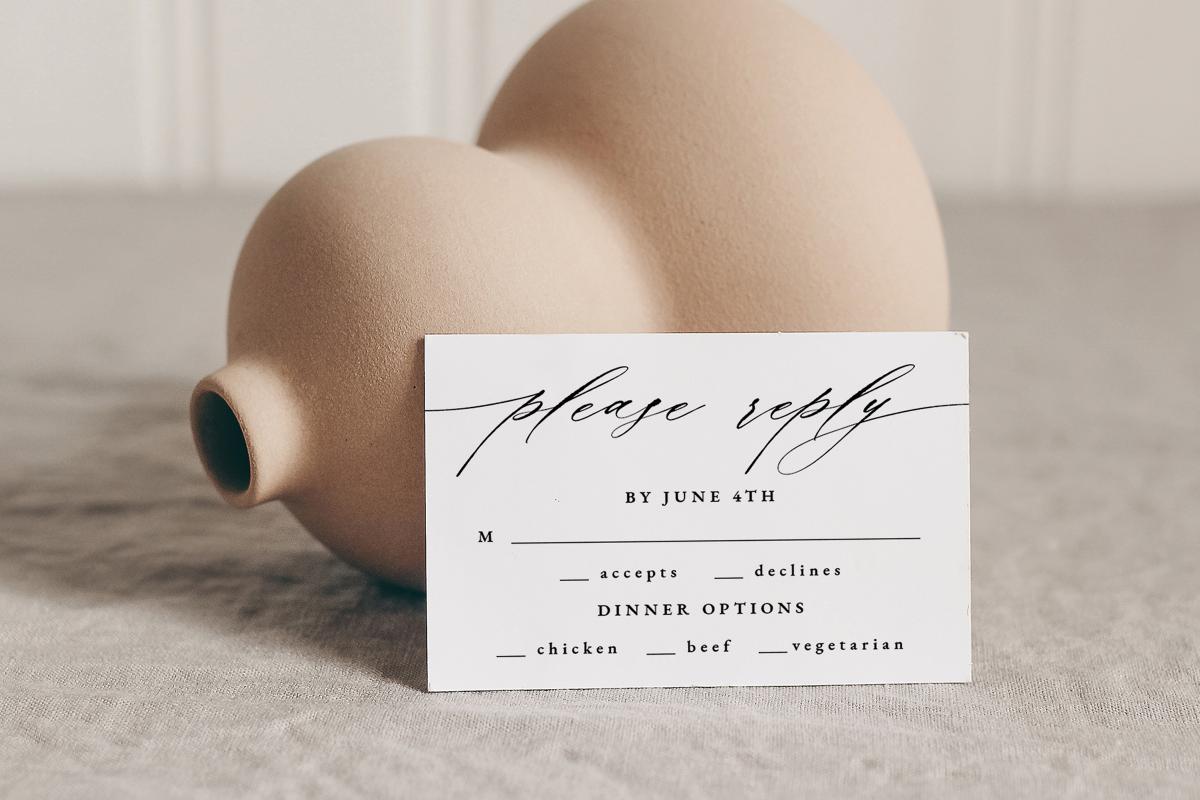
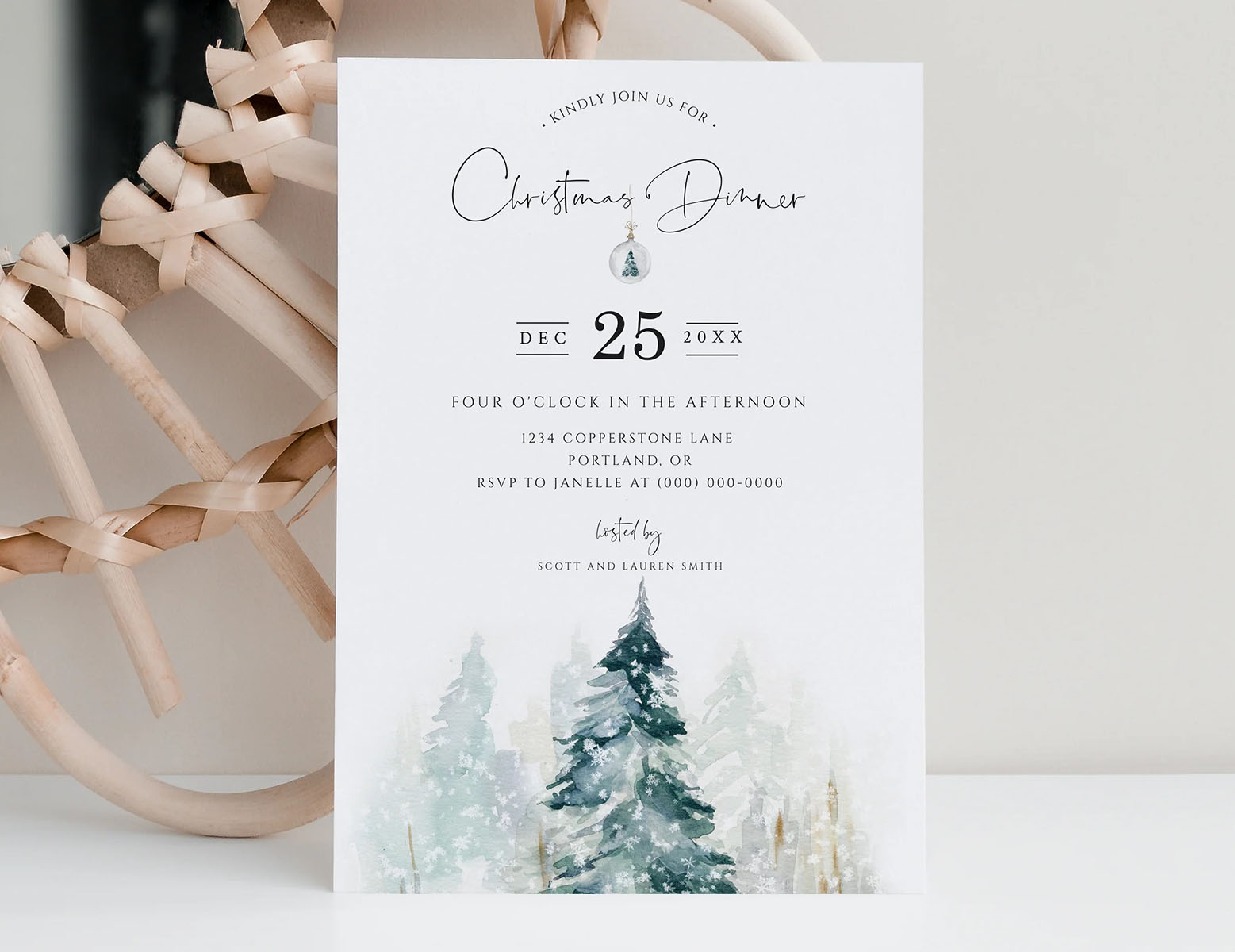
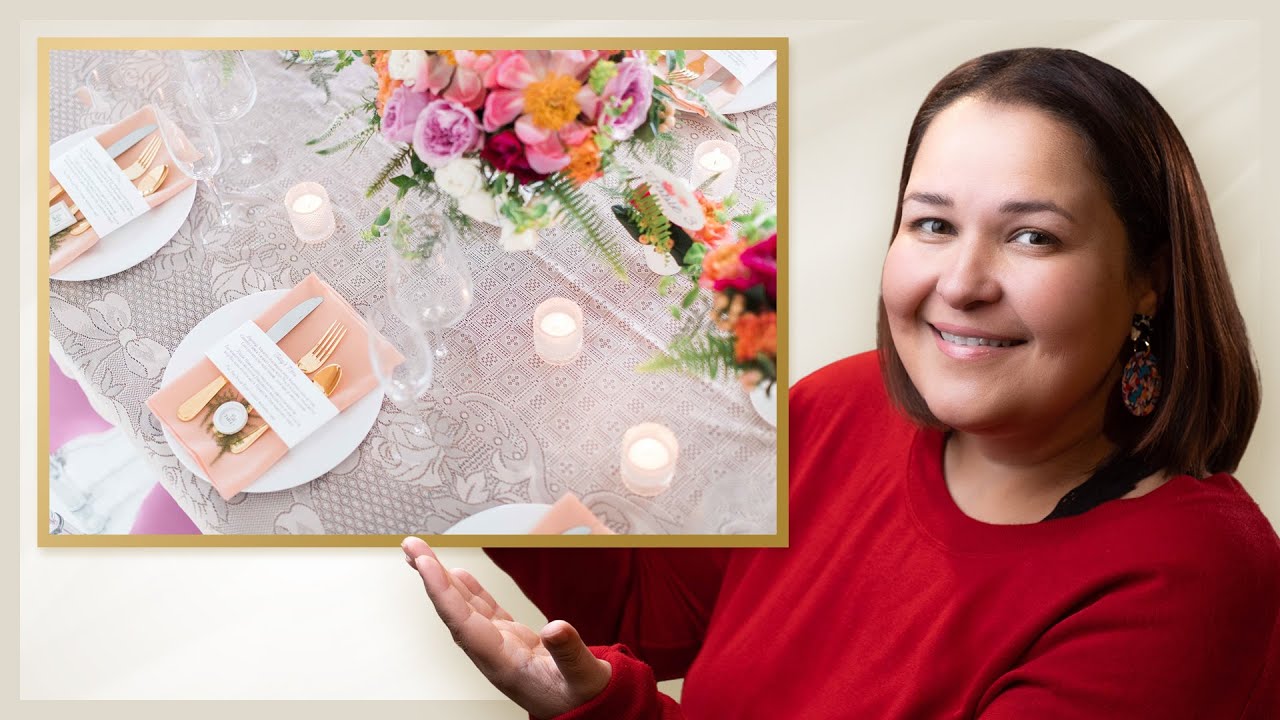
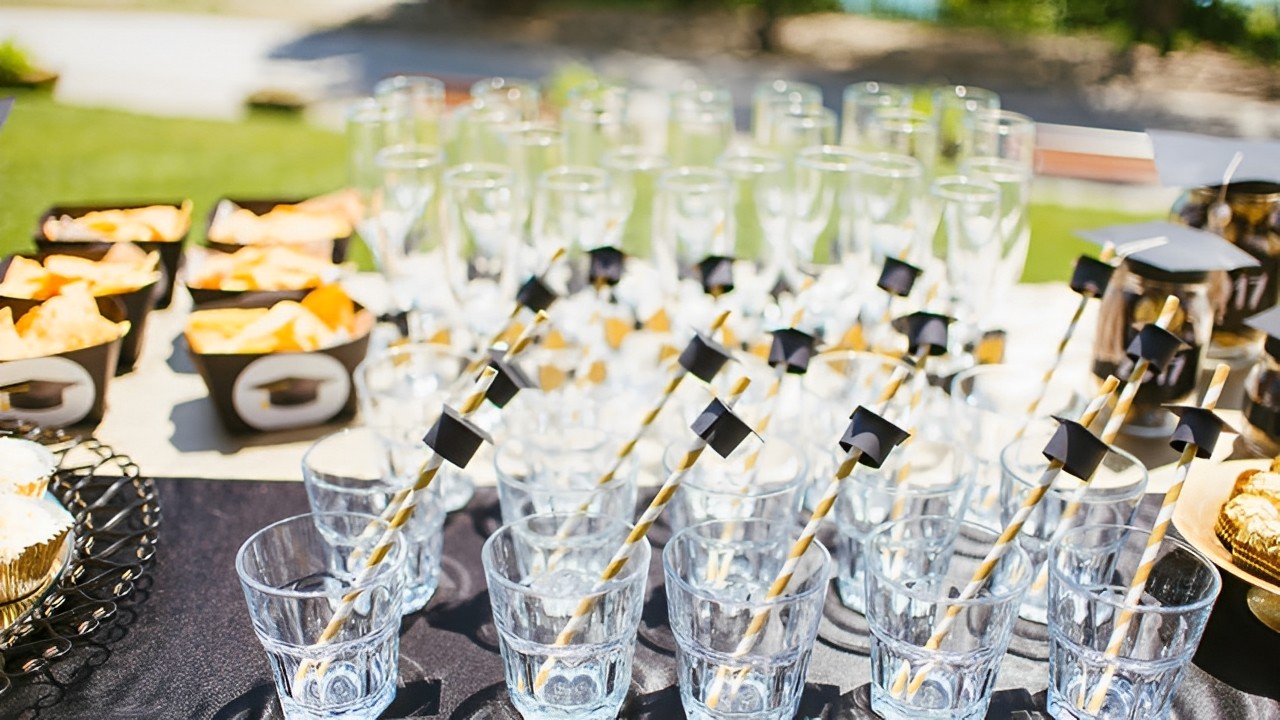


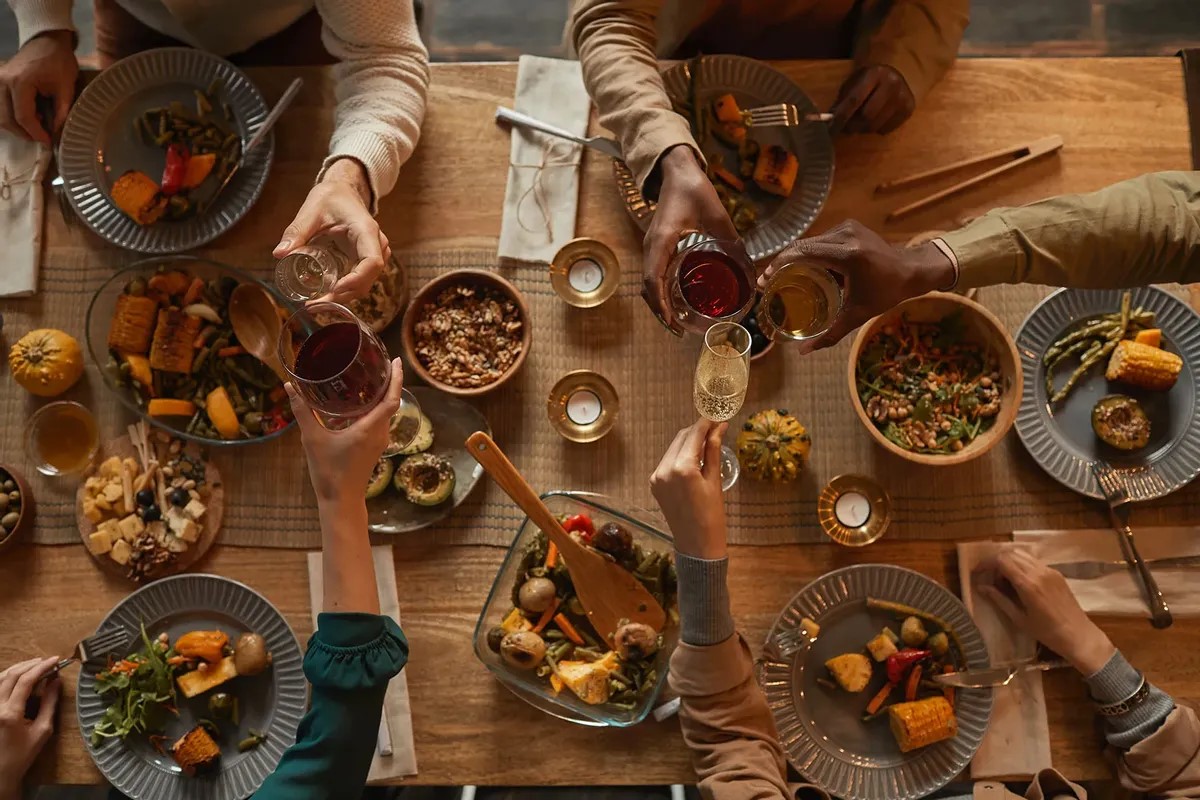

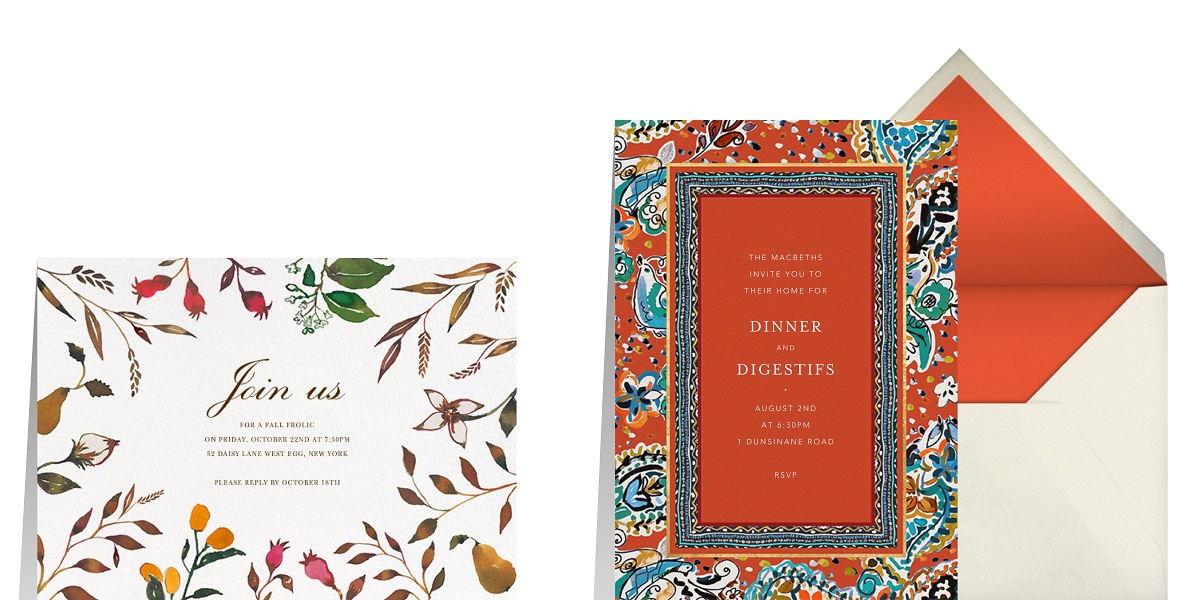

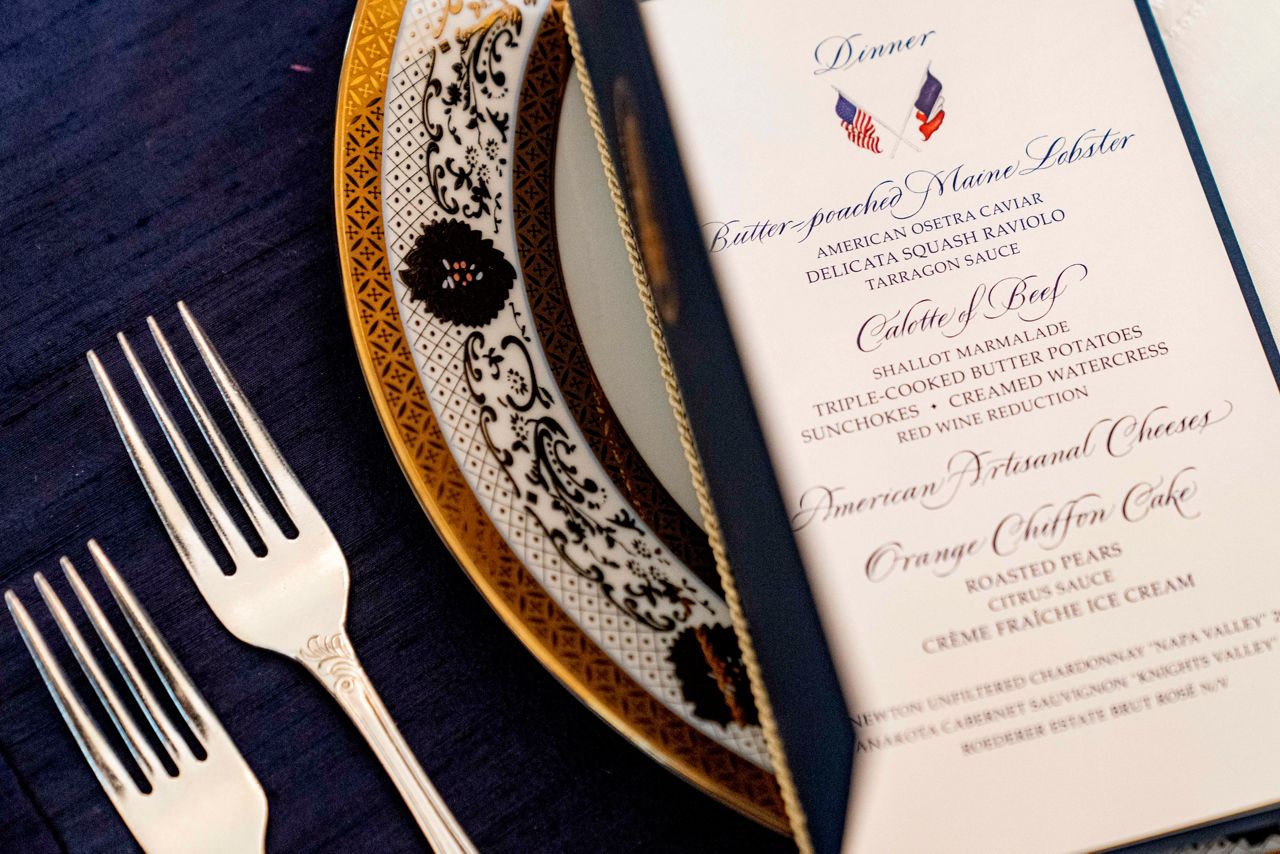
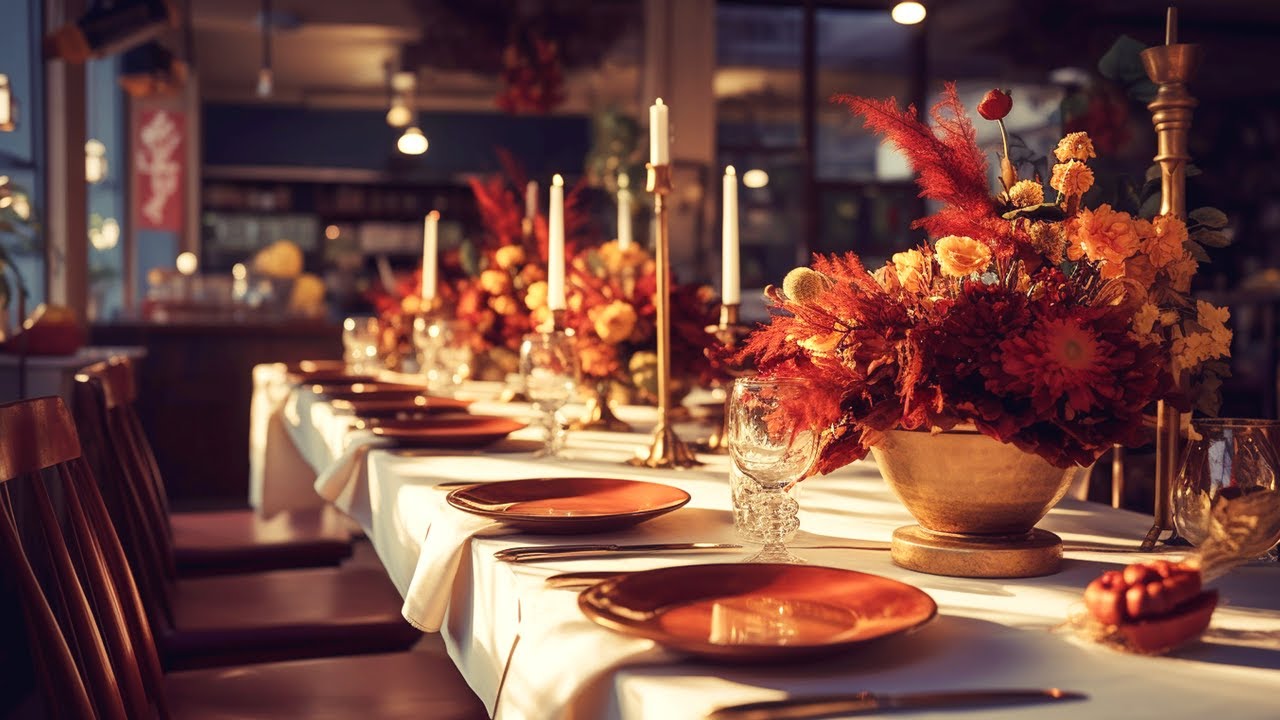


0 thoughts on “How To Accept A Dinner Invitation”